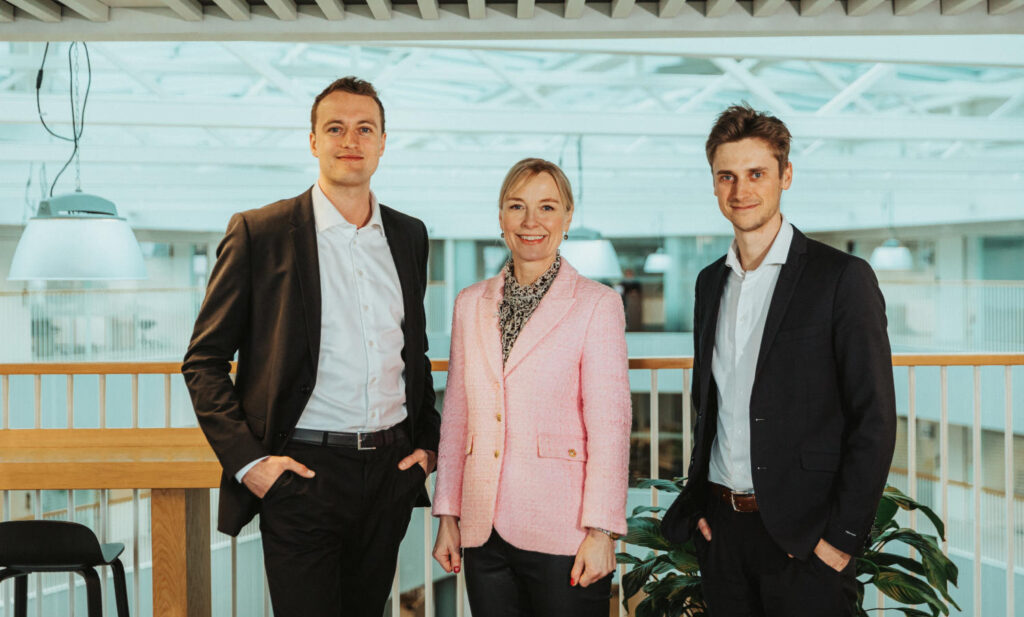It is said that you learn more from failure than from success. But perhaps it is the other way around in the university world, where, by virtue of Silicon Valley, the American frontrunners Stanford, Berkeley and MIT have become world famous for the interplay between research and entrepreneurship and synonymous with the success recipe for cutting-edge innovation.
And despite the fact that DTU (Technical University of Denmark) ranks very highly internationally and Denmark is generally at the forefront of developments and innovation, it may still be worth looking across the Atlantic. At least according to the Danish initiative Open Entrepreneurship, which, since its establishment in 2017, has been working to make the Danish university ecosystems some of the best in the world.
Experience shows, however, that it takes a lot of things to succeed.
“There’s no universal tool for this. Research shows that a wide range of elements must be present. First and foremost a capable research environment, and this must be supported by well-functioning funding mechanisms – that is, curious angel investorsEn angel investor er en velhavende person, der tilbyder penge, mentorskab og ekspertise til start-ups og nystartede virksomheder. De påtager sig risici for et ... More, venture capital funds and businesses. In general, it can be said that we must make sure that the parties have an ongoing conversation,” says Jes Broeng, serial entrepreneur, researcher and director of Open Entrepreneurship.
Open Entreprenurship is a collaboration initiative supported by the Danish Industry Foundation between seven Danish universities – Aalborg University, Aarhus University, DTU, ITU, RUC, University of Copenhagen and CBS. In 2020, the initiative won an EU award in the “Promoting the Entrepreneurial Spirit” category and, so far, it has supported more than 60 startups hatched from universities.
The work of Open Entrepreneurship is twofold
First of all, it works to connect researchers and students with a large network of angel investors, businesspeople and capital investment funds to promote Danish research – whether the aim is a startup, commercialisation or general social innovation.
This is done through so-called business units at the various universities, where Open Entrepreneurship provides a workspace for entrepreneurs to be part of the local environment, cooperating with a large network of other entrepreneurs, industrialists, foundations and investors and providing advice on starting a business.
“This classic ‘good ideas come to life by the coffee machine’ approach has become kind of a cliché. But with good reason: Because it’s true. This is why it is important to us that our entrepreneurs spend time at the universities and in the research environments. The fact that they are actually sitting further down the hall or in the neighbouring office means that a real connection can be established. Researchers get used to apply commercial thinking in connection with their research, and businesspeople become familiar with the world of academia, Broeng explains.
Inviting businesses into the universities
Secondly, Open Entrepreneurship facilitates open conversations between the business sector, the public sector and researchers. The ambition is to make businesses establish a closer relationship with the universities and develop a new approach to research which will increase the number and quality of university startups and contribute to increased knowledge sharing with small and medium-sized enterprises. And that’s the code which has been cracked by the best in the world.
“Stanford og Berkeley er så innovative, fordi iværksættere og investorer er blevet en integreret del af det akademiske liv. Fordi de er blevet en vigtig del af universitet.”
“Stanford and Berkeley are so innovative because entrepreneurs and investors have become an integral part of academic life. Because they’ve become an important part of the university.
“In Denmark, we are good at working in silos and clusters. But this may sometimes prevent companies and researchers from thinking outside the box of their usual areas of research or work. We need to be better at keeping an open mind as to how Danish research could be used to make a difference in society,” says the director of the Open Entrepreneurship initiative.
According to Jes Broeng, a closer dialogue between business and universities will be even more important in the future. Educational institutions must be places where entrepreneurs, angel investors and businesspeople have an important role to play – to a much higher degree than in the past. And this development has already begun, he remarks.
“Companies no longer come to campus for the sole purpose of working specifically on product development within their own small field. Today more and more companies have a wide range of overlapping interests with the universities. This is due to talent recruitment among the students, branding opportunities and the opportunity to gain insight into the latest research and capture the technological trends of the future.”
“Many businesses have realised the benefits of working systematically with innovation and new technologies. Although it may have no immediate relevance, two or five years from now the world may look completely different. More and more people understand this,” says Jes Broeng.
This article is a part of the magazine ‘From University to UnicornUnicorn er et udtryk, der bruges til at beskrive en startup-virksomhed, der har nået en værdiansættelse på 1 milliard dollars eller mere. More 2021’. You can read the full magazine here.









 Kære læser, du er meget velkommen til at dele vores artikler på sociale medier, linke eller referere til artikler eller content på TechSavvy.media. Men ønsker du helt eller delvist at kopiere indhold fra sitet må det kun ske efter aftale med vores redaktion på editorial@techsavvy.media.
Kære læser, du er meget velkommen til at dele vores artikler på sociale medier, linke eller referere til artikler eller content på TechSavvy.media. Men ønsker du helt eller delvist at kopiere indhold fra sitet må det kun ske efter aftale med vores redaktion på editorial@techsavvy.media.
 Kære læser, du er meget velkommen til at dele vores artikler på sociale medier, linke eller referere til artikler eller content på TechSavvy.media. Men ønsker du helt eller delvist at kopiere indhold fra sitet må det kun ske efter aftale med vores redaktion på editorial@techsavvy.media.
Kære læser, du er meget velkommen til at dele vores artikler på sociale medier, linke eller referere til artikler eller content på TechSavvy.media. Men ønsker du helt eller delvist at kopiere indhold fra sitet må det kun ske efter aftale med vores redaktion på editorial@techsavvy.media.